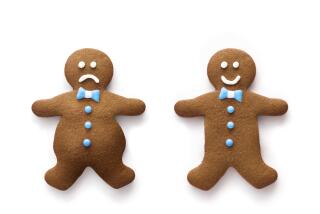Willing, then able to lose weight
- Share via
Weight loss requires an overhaul of diet, exercise, essentially your entire life. But putting off these changes is a national pastime. Eating right and exercising is better done next week because today -- just isn’t the right time.
To lose weight, say experts in nutrition and weight loss, you have to be ready to make changes, even small ones. Nutrition researchers even came up with a Weight Loss Readiness Test, a questionnaire sometimes used by health professionals and individuals to determine levels of motivation and commitment and to examine connections with food and exercise.
But what does being ready mean, and how do you know when you’re there? These specialists discuss that readiness factor.
* Martin Binks, director of behavioral health and research at the Duke Diet & Fitness Center in Durham, N.C., and co-author of “The Duke Diet”:
“I would rephrase that as, ‘What would I be willing to change? Among all these things, where do I start?’ The diet mentality is that you suddenly go from 100 to zero tomorrow -- the on/off mentality.”
Identifying what people’s barriers are to losing weight, he says, is key: “For one person it might be work commitments, for another, having emotional upheavals. But what could you start to change now?”
* Dr. Jorge Vazquez, director of medical nutrition at the Allegheny Center for Digestive Health in Pittsburgh:
“I’m a specialist, so when someone makes an appointment to see me, they’re ready. But then I see other people who are told by their physician to see me. When I ask why they’re here, they say, ‘I don’t know, my doctor sent me,’ and I know they’re not ready.”
There should be deeper motivations than looking good for a reunion or a wedding, Vazquez says. “Better ones are that you want to feel better, be healthier, not take insulin anymore.”
* Kathleen Zelman, Atlanta-based registered dietitian, director of nutrition for WebMD:
The precise moment of readiness is different for everyone.
“For people who have been successful at losing weight, something happens in their life that triggers an ‘aha’ moment. It could be having the doctor tell them that if they don’t lose weight, they’re going to die. I don’t know if you say, ‘I’m ready,’ but you feel like you can’t go on like this.”
She adds that being 100% prepared isn’t always a prerequisite. “Even if you’re not ready, see if you can make some lifestyle changes that are doable. If you’re a couch potato, go for a walk, do something that you like for 15 minutes. Once you see some benefits -- you’re sleeping better, you have more energy -- then maybe that will give you a spark, and hopefully that will lead you to say, ‘Now I’m ready to be more serious and I’ll step it up.’ ”
* Dr. David Heber, director of UCLA’s Center for Human Nutrition:
“The stimulus is different for different people. Maybe their doctor told them they had too much bad cholesterol or high blood pressure, and they’ve finally decided to do something. For other people it might be a wedding that’s coming up.”
Having a plan and a reasonable weight loss goal is paramount for success, Heber says.
“I always recommend that people seek counseling and discuss how much weight they really want to lose. Social supports are important. Studies have shown that if you’re with people who think it’s OK to be overweight, they will sabotage you from losing weight or getting to your right body weight because they’re threatened by your success. You have to be around people who have a positive attitude.”
--




